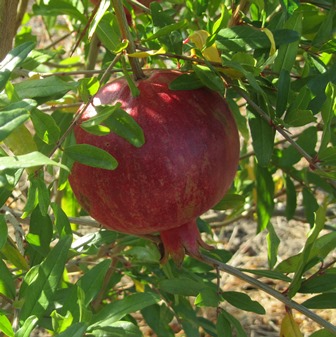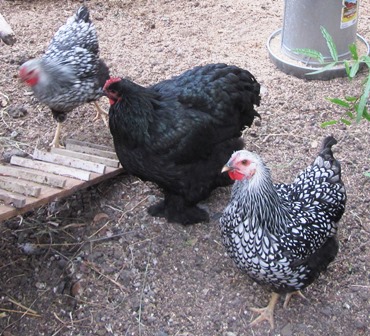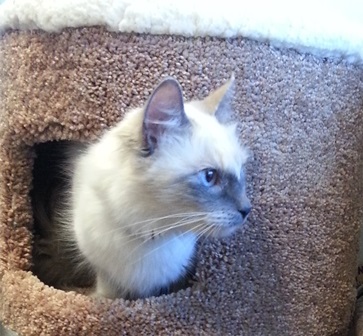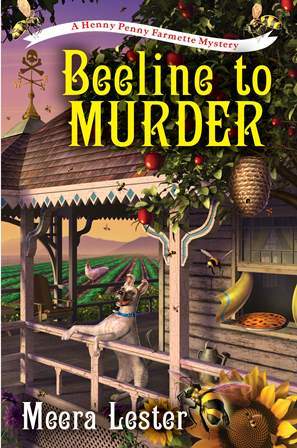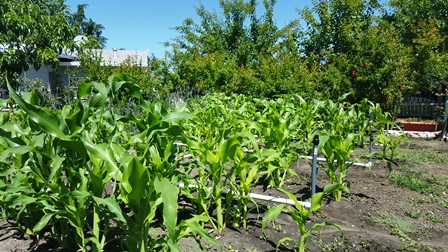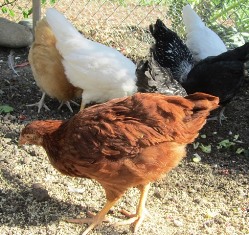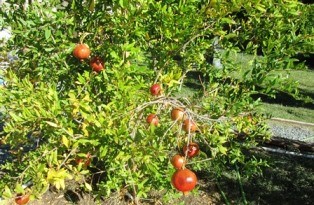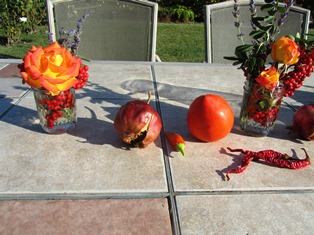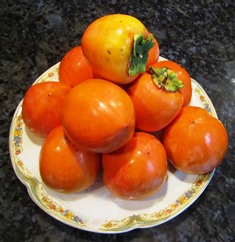A Sprained Leg Can Spell the End for a Chicken
Foxes have been routinely prowling my property and have claimed two chickens from my neighbor over the last few weeks. Thank goodness, they weren’t my hens. That said, one of my White Leghorns, a breed that originated in Tuscany but is widely raised here, developed a sprained leg, making her extra vulnerable to predators.
I noticed she was having trouble standing a few days ago. Then yesterday, I found her cowering under the hen house steps because the flock had been attacking her. I immediately removed her and tried to find a solution that would allow her time to heal without simultaneously having to find off foes.
My poultry run has its fencing wire buried into the ground and pieces wired together over the top. It’s built that way to prevent entry by raccoons, coyotes, and foxes that dig as well as hawks that hunt from the sky. But what to do with a flock of chickens that will peck to death another hen that get sick or injured?
Yesterday, inside the secure run, I built an inner circular area using poultry wire. Locating a large cardboard box, I filled it with nesting straw and stapled part of an old sheet as a curtain over the doorway. Then I put heavy blankets on the box for warmth (it’s been getting cold at night). I put a water dispenser and food outside her box and hoped for the best.
When I checked on the hen this morning, she was standing upright on both legs. She explored the inner run and then hopped back into the box to wait perhaps for the sun to warm the run. As quickly as she is healing, I might be able to integrate her back into the flock in a few days or a week.
The rains are coming tomorrow–another threat for the poor creature–so I’ll have to figure out another option to keep her dry and warm and safe. Still, she seems to be on the road to recovery and I hope returning to her scratching and foraging soon because she has stopped laying during this traumatic period. And she was one of my best egg layers; she’d lay an extra-large egg almost every other day. See, https://en.wikipedia.org/wiki/Leghorn_chicken
* * *
If you enjoy reading about farm topics (including gardening, beekeeping, and delicious recipes), check out my cozy mysteries A BEELINE TO MURDER and also THE MURDER OF A QUEEN BEE in the Henny Penny Farmette series (from Kensington Publishing).
These novels are available through online retailers such as Amazon, Barnes & Noble, Kobo Books, and Walmart as well as from traditional bookstores everywhere.
Find more info or to order, see, http://tinyurl.com/hxy3s8q
Now available in mass market paperback, this debut novel launched the Henny Penny Farmette series of mysteries and sold out its first press run.
See, http://tinyurl.com/h4kou4g
The Murder of a Queen Bee is the newest offering in the Henny Penny Farmette series. For more information, click on the link under the image.
Pomegranate Seeds–A Sweet Explosion on the Tongue
Strolling through our small orchard today, I cut into a pomegranate to check on the seeds–the edible part of the fruit. To my surprise, they had turned ripe. Inside, the seeds were gorgeous red jewels, plump and juicy. The sweet juice in the seeds carries a powerful antioxidant punch, too; it’s loaded with Vitamin C, Vitamin K, fiber, potassium, protein, and folate.
You might wonder about ways of cooking with pomegranate seeds. How about tossing them into citrus or a green salad, pairing them with goat cheese on a crostini, or sprinkling a few on poached pears dipped in chocolate, or incorporate them into a Mediterranean couscous with cashews or pistachios?
I think I’ll make some pomegranate jelly–it tastes great on toast, makes an excellent foil for goat cheese, and also creates a moist and delicious glaze for chicken.
The hardest part of making the jelly is separating the seeds from the white pith that holds the seeds in place inside the leathery peel.
The jelly recipe consists of few ingredients: pomegranate juice, sugar, water, and classic pectin. Here’s how I make the jelly.
POMEGRANATE JELLY RECIPE
Ingredients:
3 1/2 cups pomegranate juice (well strained to remove all the particles)
5 cups granulated sugar
6 tablespoons classic pectin
Directions:
Prepare boiling water canner and wash eight to ten half-pint jars in the dishwasher.
Place rings and lids in a pan of simmering hot water.
Cut one end of the pomegranate off to expose the membranes and seeds.
Section the pomegranate and scrape the seeds out into a medium to large bowl.
Repeat the process until you had several cups of seeds.
Rinse well and then run the seeds through a juice extractor.
Strain out the juice through a jelly bag or multiple layers of cheesecloth. Note: The juice stains, so take care to protect kitchen counters and clothing.
Put the juice and pectin into a large pot and bring to a boil, carefully stirring to blend in the pectin.
Add sugar and stir until completely dissolved and boil for one minute at a roiling boil that cannot be stirred down. Ladle off foam, if necessary.
Ladle jam into clean, hot jars leaving one-quarter inch head space. Attach hot lids and then the rings. Tighten to finger tight.
Lower the filled and sealed jars into the canner. Process for 10 minutes at a roiling boil. Remove and let cool.
* * *
If you enjoy reading about farmette topics (including gardening, beekeeping, and delicious recipes), check out my cozy mysteries A BEELINE TO MURDER and also THE MURDER OF A QUEEN BEE in the Henny Penny Farmette series (from Kensington Publishing).
These novels are available through online retailers such as Amazon, Barnes & Noble, Kobo Books, and Walmart as well as from traditional bookstores everywhere.
See, http://tinyurl.com/hxy3s8q
Now available in mass market paperback, this debut novel launched the Henny Penny Farmette series of mysteries and sold out its first press run.
See, http://tinyurl.com/h4kou4g
The second cozy mystery in the Henny Penny Farmette series, available Sept. 27, 2016, is now available on Net Galley (netgalley.com) for professionals and readers who write reviews. The book may be pre-ordered as well. Click on the link under the image.
Cool Ideas to Help Animals Beat the Heat
Whenever the mercury starts flirting with the century mark on the thermometer, I head for the freezer and take out frozen vegetables and berries to thaw a little before I put them out for the chickens and the wild birds.
Another treat is corn or peas frozen in water in ramekin dishes and offered to chickens on very hot days to help them keep cool. They’ll also like chilled lettuce or spinach leaves, diced fresh zucchini, and crisp cold strips of cabbage.
For pooches, ice cubes made from frozen beef or chicken broth can provide a tasty, cool treat. Chilled carrots, or a frozen ball made from mashed banana and peanut butter can refresh a pooch on a hot day, provided the animal has no peanut allergy. Make sure animals have plenty of clean, cool water to drink always, but especially on hot days.
If you walk with your pet, it’s best to go in the cool of the early morning or late evening and avoid the heat of the day. I take my Siamese on a leash for a walk in the garden each day but will wait until the evening.
Cat paws are sensitive to the heat in stones and concrete surfaces. It’s best to steer clear of those heat-trapping surfaces. Stick to grass. Take your cat out in the early morning or wait for a walk until evening after the mercury starts dropping.
* * *
If you enjoy reading about keeping bees, chickens, and other farm animals or learning about growing heirloom vegetables and fruits or making delicious farm-to-table recipes, check out my newest cozy mystery offerings from Kensington Publishing. Chocked full of all kinds of farmette tidbits, these mysteries are available online through Amazon, Barnes and Noble, Walmart, KOBO, and other online stores as well as traditional bookstores everywhere.
Memorial Day Pleasures–A Good Book and Tasty Grilling
Memorial Day weekend marks the unofficial start to summer, which means time to grab a little reading pleasure and sample some locally grown produce to go with whatever you’re putting on the grill. And don’t forget dessert. My mind is already spinning with ideas.
Hanging out in the hammock calls for a book, so if you haven’t already snagged a copy of A BEELINE TO MURDER, get your e-book today through May 30 for a great price from KOBO Books. Here’s the link: https://store.kobobooks.com/en-us/ebook/a-beeline-to-murder.
For your grilling pleasure, choose some sweet corn to grill to go with the barbecue ribs or chicken. Here on the Henny Penny Farmette, our corn won’t be ready until July, so we’re going to pick some up locally grown corn at the farmers’ market in downtown Concord.
We’ve got more than a dozen heirloom tomato plants with fruit on them. Vine-ripened heirloom tomatoes for a cool Caprese salad are also available from the farmers’ market. And as I consider salads for our weekend meals, a red-skin potato with pesto and shredded basil leaves sounds almost as good as a conventional country style potato salad. But then again, I’d love a fresh broccoli-carrot salad with an Asian sesame-seed dressing or a simple cold slaw.
We’ve got plenty of zucchini and sweet snap peas in my garden that are ready to eat. These taste divine tossed into a garlic and butter shrimp pasta with a little shaved Parmesan cheese. Add a nice chardonnay or a traditional Cuban lime mojito along with some fresh baked bread and you’re ready to head for the table in the orchard.

Sunflower-design bundt pan makes this cake pretty enough to eat without the the caramelized pecan frosting.
Desserts are on my mind too–a simple cake or a plate of berries or watermelon rings my chime. But then again, with company, I could bake some linzer torte cookies with home-canned apricot jam. Or make a rhubarb-strawberry pie. The rhubarb stalks are cherry red and ready to cut.
These are some of my ideas of simple pleasures for Memorial Day to get you thinking about yours. Wishing you a peaceful, blessed Memorial Day weekend.
* * *
If you enjoy reading about keeping bees and chickens, raising heirloom vegetables and fruits, and other aspects of modern farmette life, check out my series of cozy mysteries from Kensington Publishing (New York).
A BEELINE TO MURDER, available in hardcover, will be released in paperback format in October. THE MURDER OF A QUEEN BEE will be released October 1, 2016. Find these titles on Amazon.com, BarnesandNoble.com, Walmart.com and other online bookstores and retailers as well as in traditional bookstores everywhere.
What’s Eating the Chicken Eggs?
Several times over the last month or so, I’ve traipsed to the hen house to collect eggs and found a broken egg or one with a hole in the shell and the egg otherwise intact.
I wondered if one of the chickens had gone rogue and was pecking the egg that either she or one of the other hens had laid.
My flock is small and they usually lay their eggs during the morning hours, using the afternoon to free range and forage.
Each time I heard a cackle, I sprinted to the chicken house to see who was raising the ruckus and whether or not she’d pecked her egg.
Finally, I caught one of my Silver-Lace Wyandotte hens on the nest. With her head twisted behind and under her wing, I could not tell what was going on. I slipped my hand under her, causing her head to jerk around. It appeared I had caught her in the act as her beak was covered with yolk.
So I thought I’d solved the mystery. My solution was to remove each egg as soon as the hen laid it. If I removed the eggs, any temptation for the chickens to peck the eggs would be eliminated, too. But running for every chicken squawk became so time consuming, I finally stopped.
To my utter surprise, there were no more broken eggs. That didn’t make sense. However, during the whole ordeal with the broken eggs, I’d been smelling a skunk. When my closest neighbor said a skunk had been raiding his coop for the eggs, I began to think I had wrongly accused my poor Wyandotte.
Indeed, since my neighbor took care of the skunk (by trap, I believe), my hens are producing eggs every day and none have holes or are cracked. I’m now thinking the skunk was the egg robber.
That experience got me thinking about other predators that will eat chicken eggs (and chickens, too). The list includes opossums, weasels, rats, snakes, minks, foxes, wild dogs, coyotes, raccoons, hawks, and owls. So, even if I’ve got a nice hen house and a run with a wire roof, it seems that a predator motivated by a good meal with find a way in.
How to Repay the Thoughtful Gift of a Truckload of Manure
I begin obsessing about soil and manure this time of year after the summer garden is gone. The old adage of: take care of the soil and it will take care of you (via your plants) is really true. Out here on the farmette, the clay soil is so heavy that it cracks open in fissures during summer, so we are always working to improve it.
Recently, a generous friend brought us a truckload of horse manure. It was no small truck either. The manure seemed mostly aged and I could easily rake it into our flower beds and little lawn. Some of though is still relatively green, not aged, and I worry about using it to grow my winter crop of vegetables for fear of E-coli contamination.
There’s a new area where we are debating or not to put down a stone floor and just grow trees and flowers in a container wall on two sides. It might be the perfect place to use some of that horse dung.
In the meantime, on the property behind ours, the horse manure has been spread out with a bobcat to keep the growing areas fertile for the trees that were planted there nearly four or five decades ago.
There are all kinds of manures one can use in the garden, from bat guano and worm casings to animal waste products–horse, cow, sheep, steer, turkey, rabbit, and chicken, for example.
You can get manure tested, much like you can soil, to detect levels of nitrogen, phosphorus, and potassium. Not all manures are high in nitrogen, which is loved by many gardeners for that sudden growth and burst of bloom. Some manures, like cow and horse, also can carry seeds of weeds or whatever the animal has grazed on, which can emerge in your garden.
Most manures can be made into a fertilizer “tea” by mixing with water. Whether you apply aged manure or manure tea, always wash your fruits and vegetables well before eating to reduce the risk of consuming contaminated fruit or produce.
We appreciate our friend’s gift. Now . . . we wonder how to repay his kindness. I’m thinking a basket of persimmons and pomegranates, a French sugar pumpkin, a dozen organic eggs, and jars of jam and honey.
 Facebook
Facebook Goodreads
Goodreads LinkedIn
LinkedIn Meera Lester
Meera Lester Twitter
Twitter











